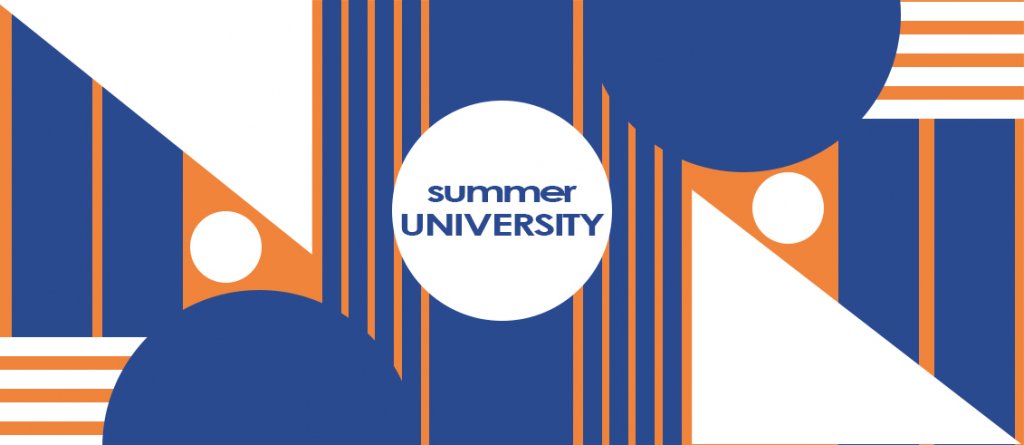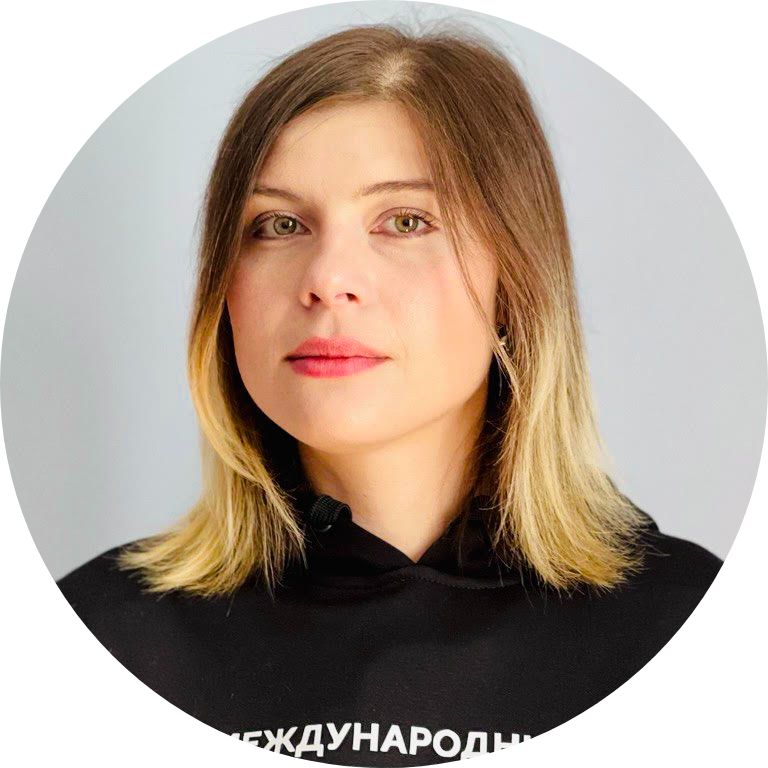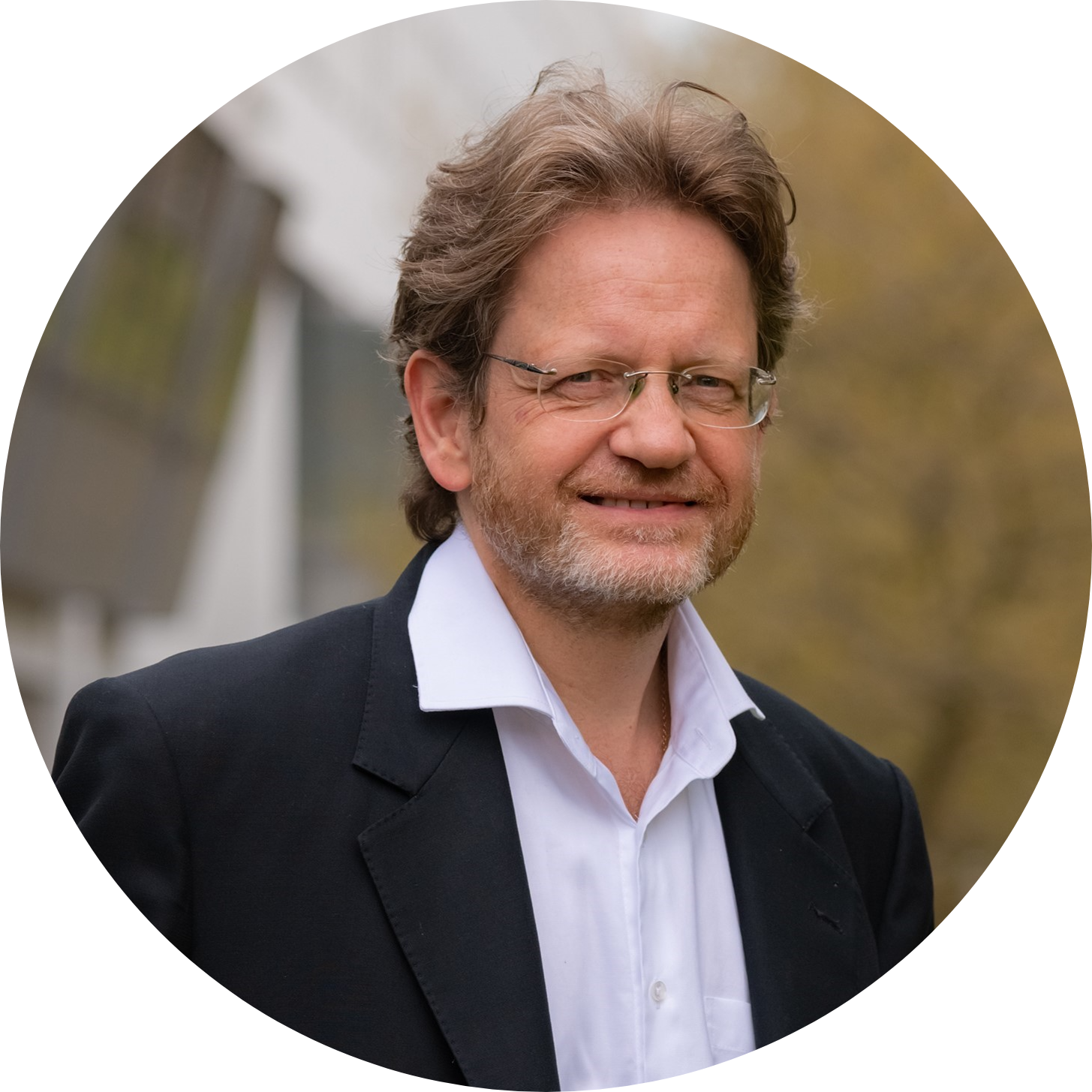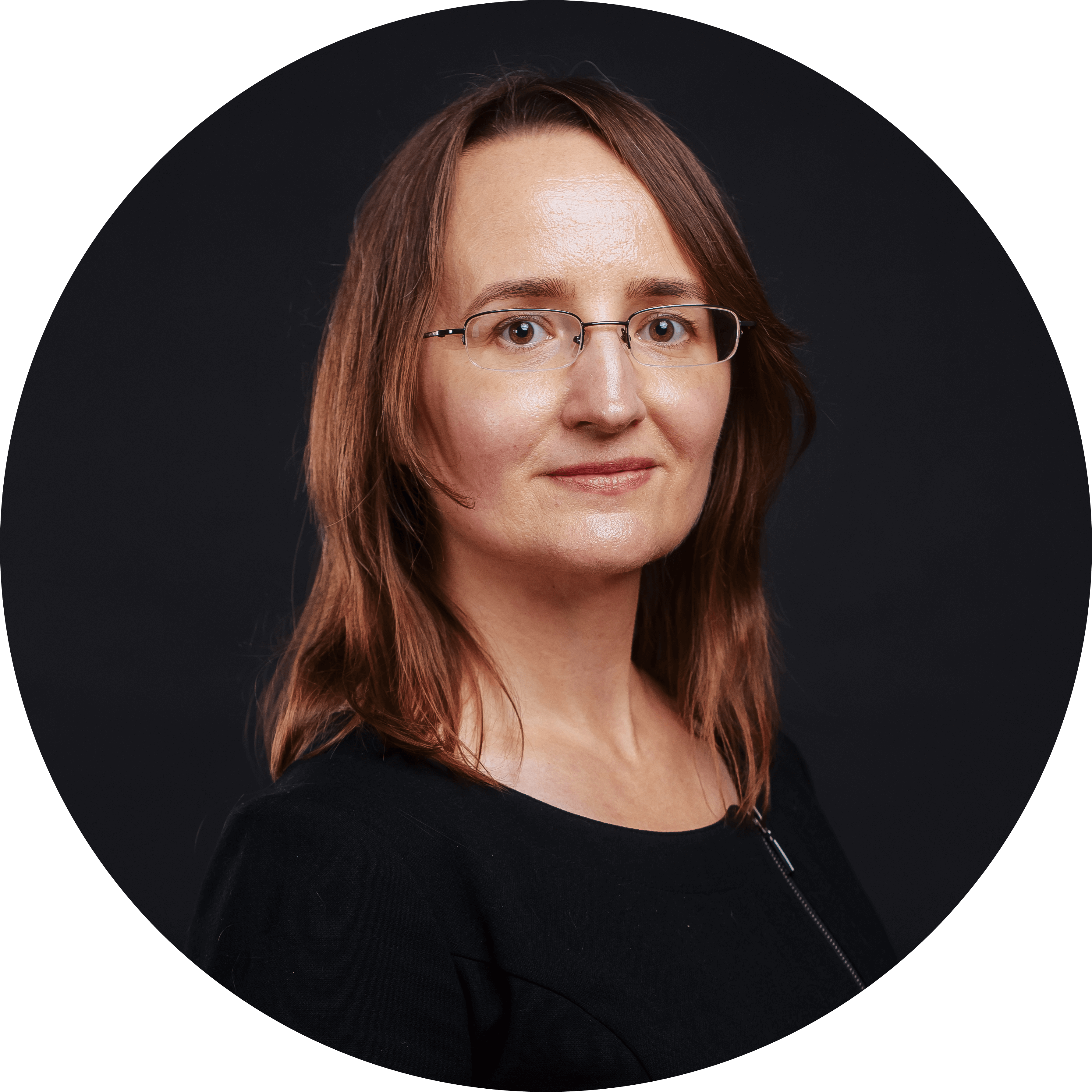
Human Rights for Everyone: Restoring Justice. The Case of Belarus
| Field of study | Social sciences, humanities, and arts |
| Duration | 5 days |
| Dates | August 9–13, 2021 |
| Mode of delivery | Online |
| Credits | 3 ECTS |
| Application deadline | July 16, 2021 |
| Contact | su@ehu.lt |
| Max. number of students | 30 |
| Target group | BA and MA students, also graduates of social sciences, humanities, and arts |
| Entry requirements | Strong motivation and English language knowledge at least at B2 level |
| Short description |
Welcome to Summer University at European humanities university, a special study and professional development opportunity for students, academics, and practitioners from all over the world. Please check out our course offering for the summer of 2021 below. The Summer University is on an average one-week-long event that takes place during summer in the heart of Vilnius. Understanding and exploring the human rights nature, defending human dignity, fighting for tolerance, and creating open-minded citizens who are not afraid to share their opinion in an open discussion about the future of Belarus, are some of the reasons why 8 lecturers from different fields of law come together this year to analyze the experience of the default of Belarussian legal system. The Summer University Project was born after a year since the presidential elections in Belarus in 2020. This project is the main tool to attain an ambitious but challenging question ever: ‘How to go through and live in a post-dictator regime?’ After the terrible events that ended with the adoption of the UN Charter in 1945, the creation of a system of treaty bodies, the existence of various methods and practices for the implementation of international human rights standards, in 2020 the phenomenon of torture appears in Belarusian society. The authorities actively use torture to suppress the possibility of social change. Belarus has created a new regime in which lawyers have to fight impunity and lawlessness by legal means. In the context of Belarus, many mechanisms that seemed dormant began to sound like a real opportunity. The activities carried out during a Summer University range from academic classes, such as learning constitutional bases for a democratic society, or conditions for universal jurisdiction to multicultural activities, such as: getting familiar with human rights standards, geo/politics aspects of Belarusian case, and ways of restoring justice. But also, non-formal education takes place: you could learn Belarusian history, attend a lecture about NGO’s experience in Belarusian case or take part in a workshop about communication of Belarusian identity. Each Summer University class follows a thematic throughout its duration that is related to rule of law and democracy principle, growth of feeling in social solidarity and responsibility, intercultural dialogue, active citizenship, restoring peace and justice. In a Summer University, you will be given the chance to enhance the level of understanding of Belarusian modern history and its development in terms of human rights, rules of law, and democracy. You will learn how existing human rights defending mechanisms work in practice and how to implement international standards in a national law. “These courses provide new lessons in a highly condensed timeline compared to traditional university subjects,” said Assoc. Prof. Liudmila Ulyashyna, head of the Committee Program “Law, Political Science and Economics” and leads the “Centre for Constitutionalism and Human Rights” of the European Humanities University. “Summer University offers a chance to explore new ideas, find inspiration in a diversity of perspectives, and network with professionals across fields”. |
| Aim | To increase knowledge about human rights and ways of their defence, encourage participation of youth in considering/solving the HR issues, specifically problems in delivering justice for protecting individual rights via applying constitutional/international provisions as normative frameworks and by referring/interpreting human rights´ values in the modern context. |
| Learning outcomes |
|
| Program structure | Draft Agenda |
Fee[1]
| Early Bird | From July 1, 2021 | Fee for Belarusian participants |
| Online | Online | Online |
| 150€ | 200€ | 70€ |
[1] The fee includes: Lectures and workshops.
Application Process
Start your application by completing our online form. Please fill out all required fields. After you submit your application, you will be notified within two weeks if you have been accepted to the program and payment details will be provided. You have one week to pay the fee. Once we receive your payment, we will issue you an Acceptance Letter and your place in EHU Summer University will be secured.Terms and Conditions
Please review the EHU Summer University Terms and Conditions before submitting your application.Short Bios of Organizers of the Summer University

Prof. Aliaksandr Vashkevich
Prof. Aliaksandr Vashkevich, Former Justice of the Constitutional Court of Belarus is a Professor of Public Law at European Humanities University in Vilnius, Lithuania. He teaches Comparative Constitutional Law, European Human Rights Law and EU Institutional Law.
He holds LLM from Belarusian State University Law Faculty and doctoral degree in Constitutional Law from Charkiv Law Academy. He has more than 130 scientific publications, including Commentary to the Optional Protocol to the International Covenant on Civil and Political Rights (2016). From 2006 Prof. Vashkevich is a member of the OSCE/ODIHR Panel of Experts on Freedom of Peaceful Assembly and Association and co-authored joint OSCE/ODIHR –Venice Commission Guidelines on Freedom of Peaceful Assembly translated into several languages, including Russian, Arabic, Armenian, French.
Being an expert of the Council of Europe from 2007, Prof. Vashkevich organized training, seminars and lectured for highest judicial institutions and members of the parliaments in Azerbaijan, Armenia, Belarus, Kazakhstan, Kosovo, Kyrgyzstan, Moldova, Turkey, Turkmenistan, Ukraine, Uzbekistan. He also was a key national expert of the UNDP project “Promotion of a wider application of international human rights standards in the administration of justice in Belarus” in 2008–2010 and a key international expert of the UNDP project “Support to implementation of Charter-based and Treaty Bodies recommendations in Uzbekistan” in 2019–2020.

Inesa Stolper
Inesa Stolper, lecturer at the European Humanities University, PhD candidate at Mykolas Romeris University (MRU).
Ms. Stolper received her LL.M degree at College of Europe, Belgium, where she studied EU law and then continued her education at PhD program at MRU. Ms. Stolper has 9 years of teaching experience.
She has background in administration of law programs and project management. Inesa Stolper served as an expert in a number of regional and international projects. Her teaching and research interests are focused on access to justice, dispute resolution and technologies, digitalization of justice and the right to a fair trial.

Assoc. Prof. Liliana Tymchenko
Liliana Tymchenko – Associate Professor at the Faculty of Law and International Relations at the Borys Grinchenko Kyiv University (Kyiv, Ukraine). She holds a specialist diploma in law from the State University of Moldova (1994) and a diploma of doctor in law from the International Independent University of Moldova (1998).
Her scholarly interests focus on counterterrorism, the protection of human rights, the recognition of states in international law, methods of teaching international legal disciplines and research methodology.
Assoc. Prof. Liliana Tymchenko has been a visiting Professor at the Rutgers Law School (Newark, N.J., U.S.A.); the Yale International and Area Studies (New Haven, Ct., U.S.A.); the Faculty of Law at the Geneva University (Geneva, Switzerland); the Graduate School of Management in Barcelona (Barcelona, Spain).
Starting from 2006, Assoc. Prof. Liliana Tymchenko is a visiting Professor at the European Humanities University in Vilnius (Lithuania). Notable is her four years of active participation in the Civic Education Project (USA, Hungary) with a responsibility to spread democratic values via teaching and organizing international activities for professors and students, such as conferences, moot courts, roundtables.
In recent years, Assoc. Prof. Liliana Tymchenko has been actively engaged in expert activities within the Scientific Advisory Council of the Higher Administrative Court of Ukraine and the Legal Reform Commission under the President of Ukraine.

Victoria Fedorova
Head of Legal Initiative – Belarusian Human Rights NGO, representative of International Committee for the investigation of torture in Belarus.
Victoria Fedorova received her LL.M degree at Belarusian State University, Master’s thesis topic: “International standards for the prohibition and prevention of torture and their implementation in the Republic of Belarus”.
She started work in the NGO “Legal Initiative” as a lawyer, was engaged in appealing human rights violations in courts and at the international level (preparing appeals to the Human Rights Committee and to the UN Special Rapporteurs). The main topics: torture, inhuman conditions of detention, violation of the right to peaceful assembly. Currently, she coordinates the work of the organization’s lawyers, engaged in international advocacy: presentation of reports and interactive dialogue within the UN (Committee against Torture, Universal Periodic Review, side events on the situation with human rights and violations of freedom from torture in particular), multilateral and bilateral meetings.

Prof. Dainius Žalimas
Prof. Dainius Žalimas was born on 22 May 1973 in Vilnius. Holds a Ph.D. in law, former President of the Constitutional Court of the Republic of Lithuania.
In 1996, Prof. Dainius Žalimas graduated from the Faculty of Law of Vilnius University. In 2001, defended his Ph.D. thesis at Vilnius University.
In 1996–2018 Prof. Dainius Žalimas has been a lecturer and professor at Vilnius University, in 2002–2005 – a lecturer at the Law University of Lithuania (at present Mykolas Romeris University), and in 2001–2003 lectured at the Military Academy of Lithuania.
From 1998 until 2011 was a legal adviser to the Minister of National Defence. In 2005–2011, Prof. Dainius Žalimas was a member of the Permanent Court of Arbitration. Is an author of several books as well as of numerous articles dealing with the issues of public international law and constitutional law. On an individual basis as well as while taking part in various working groups, he was engaged in the preparation of a number of draft laws of the Republic of Lithuania.
In March 2011, Prof. Dainius Žalimas was appointed as justice of the Constitutional Court. In the period of March 2014–June 2021, he has been President of the Constitutional Court of the Republic of Lithuania. Currently, he is a Professor at the Mykolas Romeris University and the head of a newly established public non-profit organization “Law and Democracy Center” (initially – Justice Hub for Belarus).

Prof. Kai Ambos
Prof. Kai Ambos studied law and politics at the Universities of Freiburg, Oxford (UK) and Munich from 1984 to 1990. Prof. Kai Ambos holds, since May 2003, the Chair of Criminal Law, Criminal Procedure, Comparative Law, International Criminal Law and Public International Law at the Georg-August-University Göttingen, Germany.
He served as a Judge at the Provincial Court (Landgericht) of Lower Saxony in Göttingen from 24 March 2006 to 7 February 2017, with his appointment as Judge at the Kosovo Specialist Chambers (KSC), The Hague. On 6 December 2017 he has been appointed as Advisor (Amicus Curiae) to the Colombian Special Jurisdiction for Peace. On 17 September 2018 Prof. Kai Ambos received the price “Orden Carlos Lemos Simmonds” for his involvement in the Colombian peace process. He is also list Counsel at the International Criminal Court. On 17 November 2020 he received the Wissenschaftspreis Niedersachsen which is the highest academic award in this Federal state. Since June 2021 is a permanent Visiting Professor at the Law Faculty of the University of Lisbon (Portugal).
Since December 2013, Prof. Kai Ambos is also Director of the Centro de Estudios de Derecho Penal y Procesal Penal Latinoamericano (CEDPAL) of Georg-August-Universität Göttingen.
His main research lies in criminal law and procedure, comparative law, international criminal law with a regional focus on Latin America, Portugal, Spain and Eastern Europe.

Assoc. Prof. Liudmila Ulyashyna
Assoc. Prof. Liudmila Ulyashyna is Head of the Committee Program “Law, Political Science and Economics” and leads the “Centre for Constitutionalism and Human Rights” of the European Humanities University.
Having extensive practicing experience as a Belarusian lawyer, Assoc. Prof. Liudmila Ulyashyna has also developed her international experience, including cooperation with international organizations, research, design and leadership of capacity building programs and courses for practicing lawyers and law students.
She had graduated from Master’s program in Germany with a dissertation “Jurisdiction of the International Criminal Court for the prosecution of offenders from the non-parties of the Rome Statute” and received her doctorate in Sociology (from Vilnius University) for research monograph “International legal standards in the field of human rights and their realization: theory and practical application”.
Assoc. Prof. Liudmila Ulyashyna is an author of numerous courses, books and articles. The main topics are national implementation of international obligations, the role of individuals in the human rights law, genesis and guarantees of legal assistance institutes, human rights culture and education. Nowadays, she is among those scholars and practitioners who are aiming to reinforce the legal remedies for justice in Belarus.

Dr. Jolanta Bieliauskaitė.
Head of the Academic Department of Social Sciences, European Humanities University.
Dr. Jolanta Bieliauskaitė has 15 years teaching and research experience. Before holding the position of the head of the Academic Department of Social Sciences at the European Humanities University, she has been working as an adviser for education issues at the Office of the Government of the Republic of Lithuania and as an associate professor at Mykolas Romeris University (Lithuania). Her teaching and research interests are focused on issues of philosophy of law, academic ethics, and higher education policy.